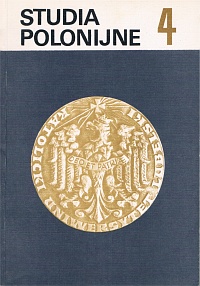The role of Rev. Wojciech Turowski in the Church action of aiding refugees during World War II (Lisbon 1940-1945)
Main Article Content
Abstract
On the occasion of the 20th anniversary of the death of Rev. Wojciech Turowski (1894-1959), the General of the Pallotini Fathers and Bishop-Nominee of the Częstochowa diocese, the author, who has already published a biographical study of the late Father, takes on a 5-year fragment of his life in the capital of Portugal Rev. Wojciech Turowski devoted in the first place to aiding the victims of the war. Against the background of efforts undertaken by the Vatican to save the refugees, and also against the background of the conditions the refugees found themselves in in Lisbon, the author presents Rev. Turowski's various activities in the years 1940-1945, basing his work mainly on archival documents (Gener. Pallot. Record Office in Rome) and on volumes of documents of the Holy See concerning World War II, published recently (Libr. Editr. Vatic., vol. l-IX, 1971 ff).
As the General Secretary and a member of the General Council of the Pallotini Fathers, he was sent to Lisbon as the general delegate and the connection between the Institute Headquarters and those parts of the institute, which were separated by the war. Although fulfilling the tasks connected with that mission took up a lot of his time, functions connected with aiding the refugees:Poles, Jews of Polish origin, both baptized and of Jewish faith, and also other Jews and Aryans, gave him much more trouble. He did that job at first on the part of an association called „Raphaels-Verein", which was used by the Vatican till it was formally abolished by the Nazi authorities, and later at his own risk, in close cooperation with the director of the Rome branch of the association. Rev. Antoni Weber SAC. According to the data from Jewish sources, the Rome branch took care of about 25 000 Jews, and facilitated a safe departure of 4 000.
Apart from these 'i£v. Turowski actively cooperated with Polish protection centers, and first of all with the Lisbon representation of the London Ministry of Social Protection under the direction of S. Schimitzki and with the Representation of American Polonia Council directed by F. Piskorski. And finally Rev. Turowski voluntarily organized and conducted in almost all that period a ministration center for refugees, gathering round himself first of all Poles working there or staying there temporarily.
Relating these activities, the author also presents various plots and persecutions aimed at that zealous priest mainly for political reasons, who, in addition, suffered from anaemia and weakness resulting from blood poisoning revealed only towards the end of his stay in Lisbon.
The author closes his essay with a general charakterization of that outstanding Pole and Priest.

